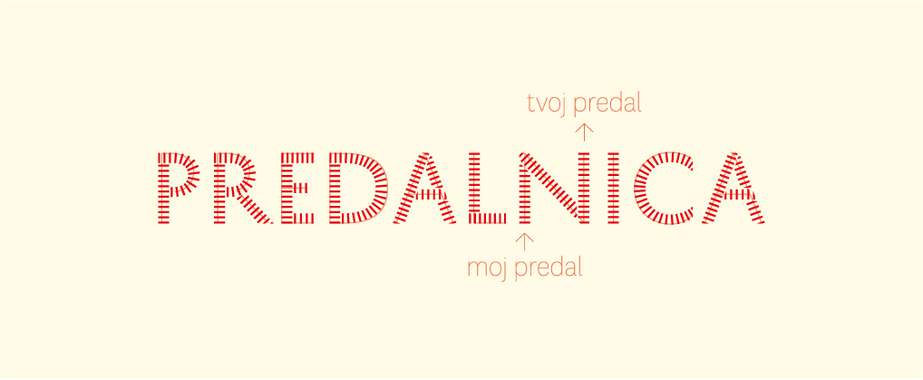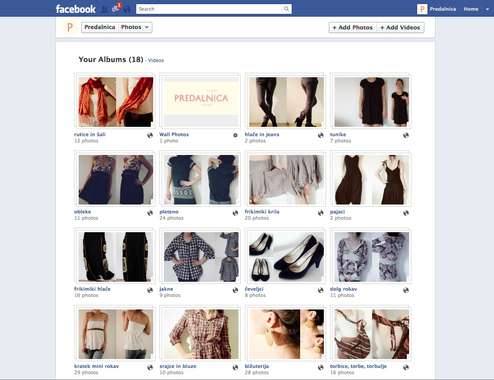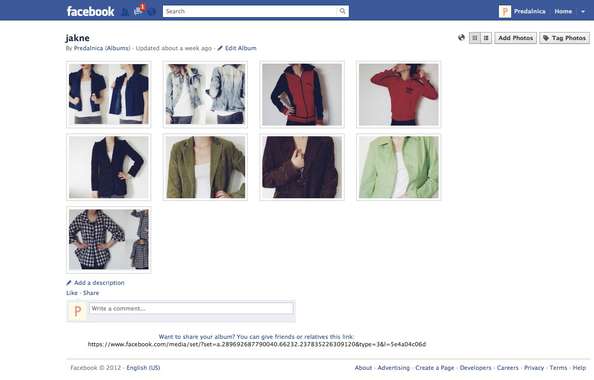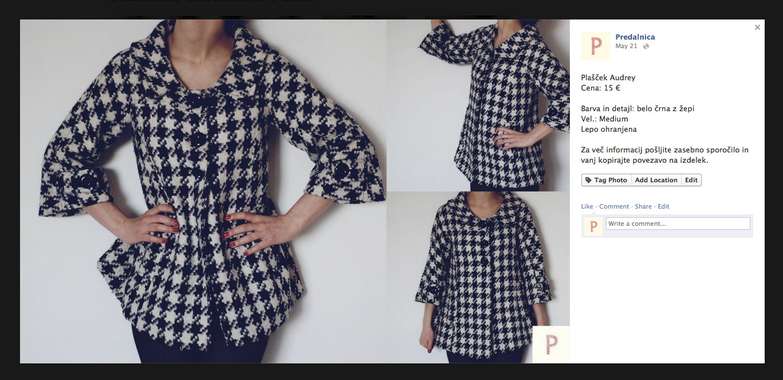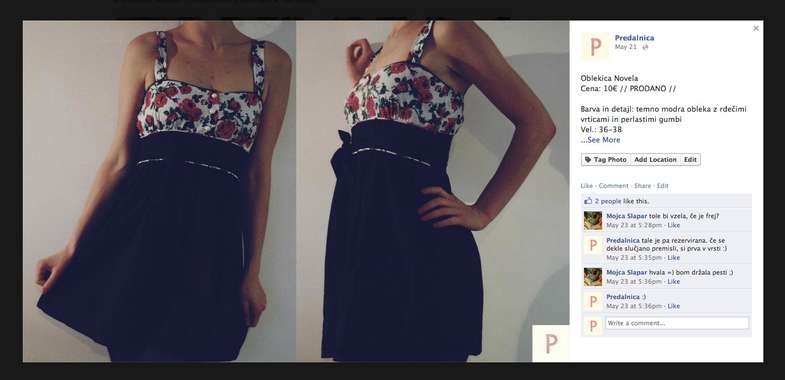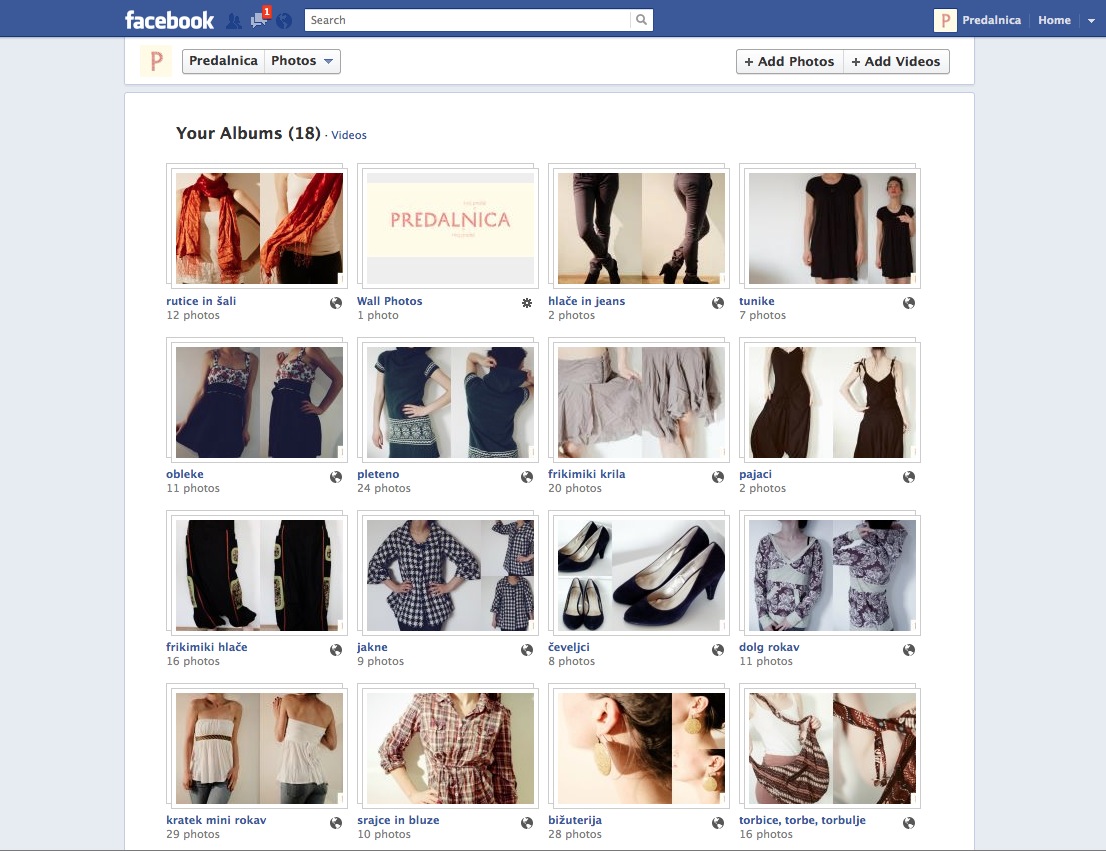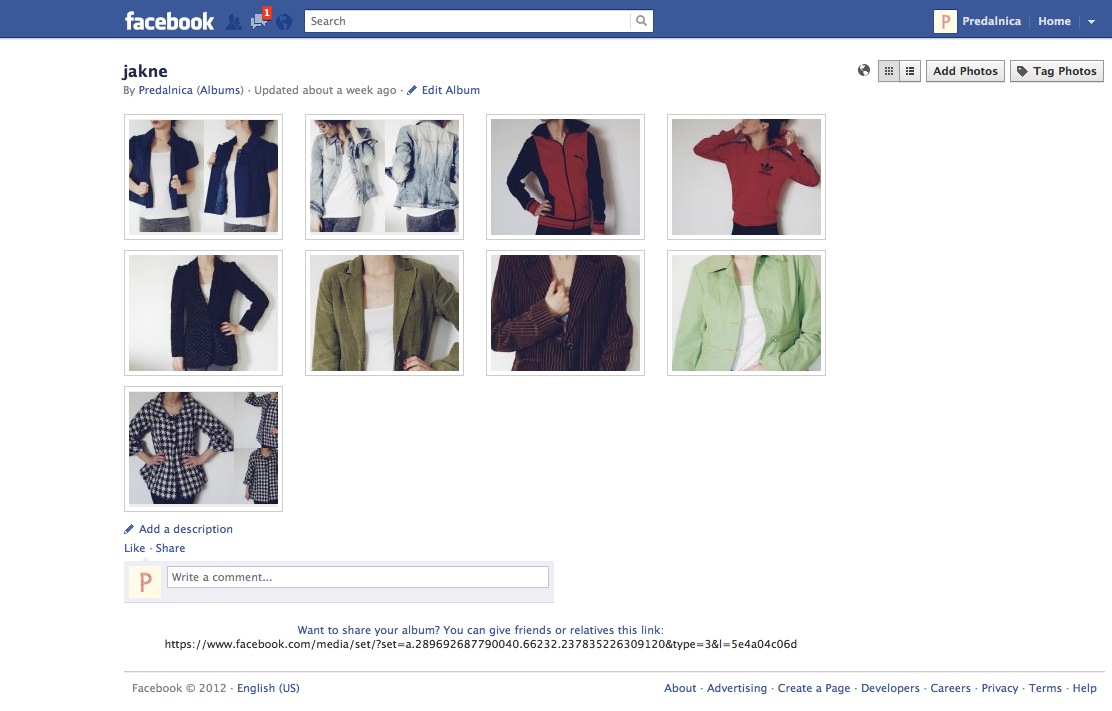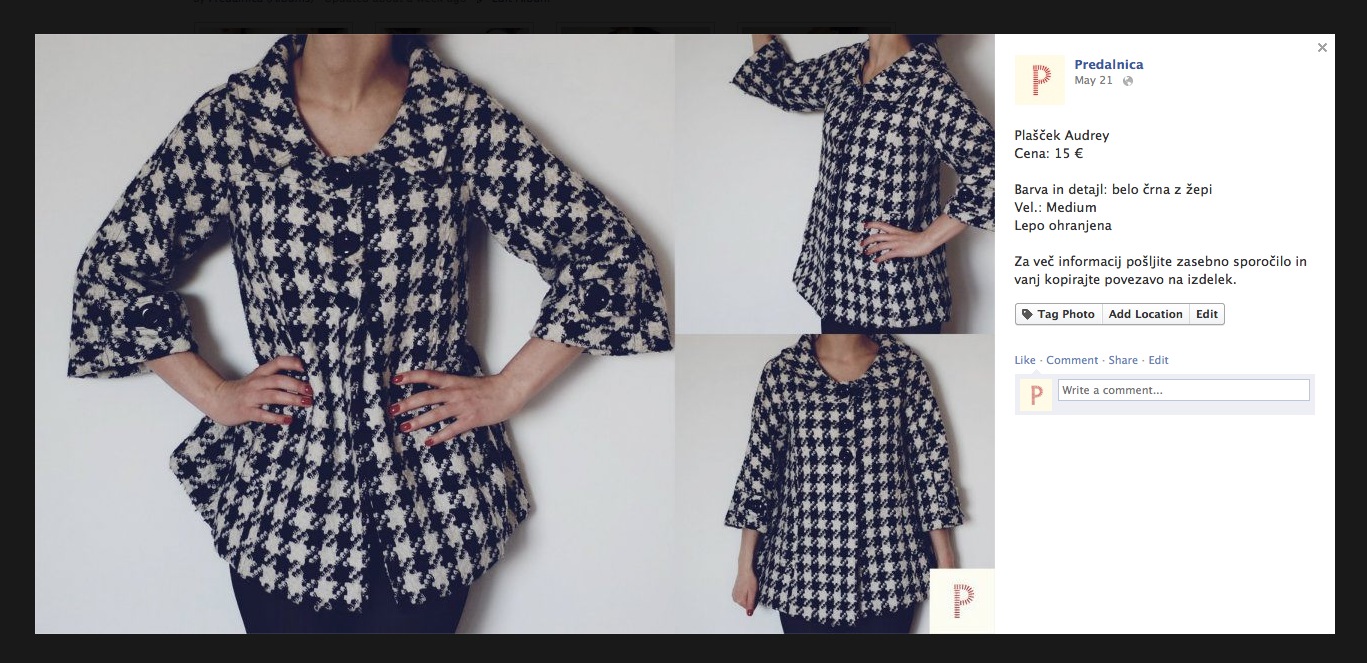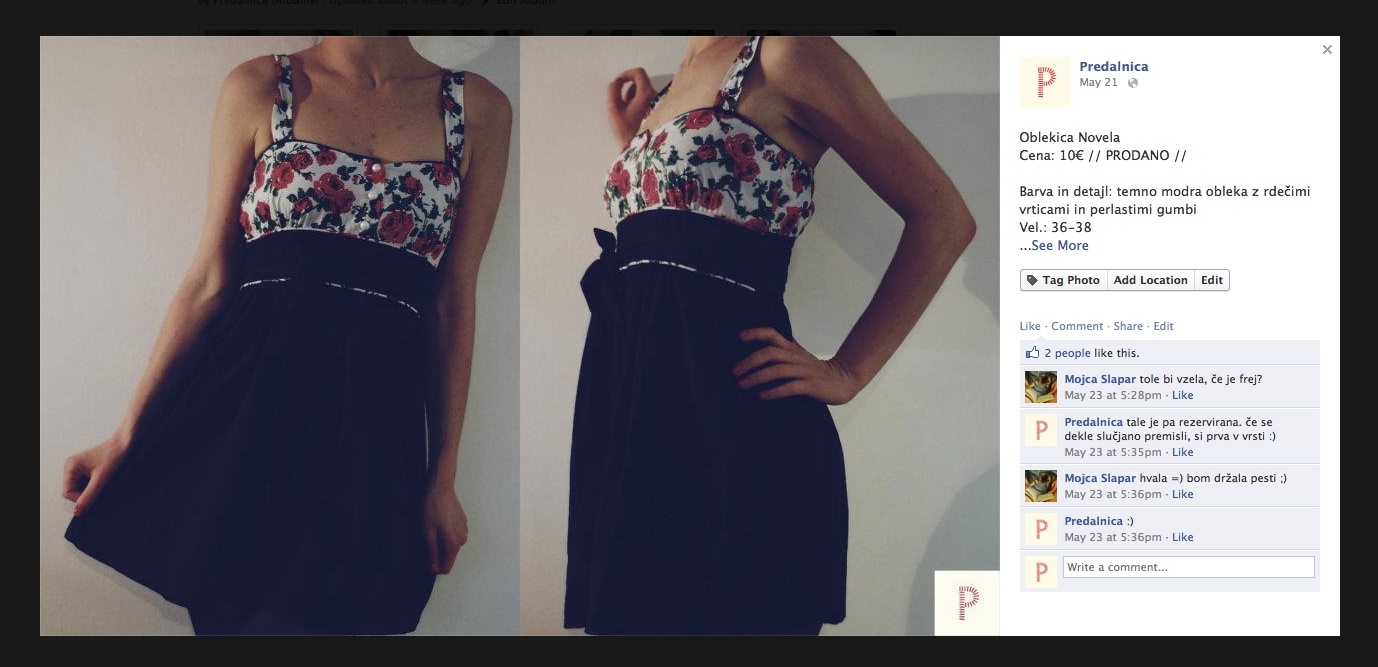Predalnica
by aljaz
This work has been commented by 1 curator(s). Read the comments
Title
Predalnica
Headline
Used clothes for used prices.
Concept author(s)
Katja Šircelj, Aljaž Vindiš
Concept author year(s) of birth
1987, 1987
Concept author(s) contribution
Initial idea and developing the rules of the exchange. Developing the timeplan for the set-up and and gradual release into the public. Choice of the first guest platform.
Concept author(s) Country
Slovenia
Designer(s)
Aljaž Vindiš
Designer(s) year(s) of birth
1987
Designer(s) contribution
Developing a technically appropriate logotype for screen use, using the History typeface family by Typotheque, with clear semantics and an easy system of implementation anyone could replicate with some basic effort. Setting up the network and maintaneance of the network.
Designer(s) Country
Slovenia
Copy author(s)
Katja Šircelj
Copy author(s) year(s) of birth
1987
Copy author(s) contribution
Writing the manifest and the rules of the Predalnica in strong, clear terms. Developing an easy system of tagging the clothes, anyone could replicate with some basic effort.
Copy author(s) Country
Slovenia
Other author(s)
Julija Somrak
Other author(s) year(s) of birth
1986
Other author(s) contribution
Invited to the project. Gave invaluable first feedback and helped in uploading the first batch of content. Activelly involved in testing and development of the network.
Other author(s) Country
Slovenia
Friendly Competition
Competition category
Mobilization
Competition field
nonacademic
Competition subfield
professional
Subfield description
I work at the crossroads of visual communication and informatics. I have and independent practice with commisioned and self-initiated work.
Check out the Debt. 2012 outlines of Memefest Friendly competition.
Description of idea
Describe your idea and concept of your work in relation to the festival outlines:
Current austerity measures, brought on in response to the collapse of the financial system, are exerting a pressure on youth, already demoralised by their precarious position in society and a grim realisation of devaluation of their education. As no effective measures are being taken to actually solve their position, they have to either take care of their situation or take on more debt. Predalnica (Slovene for "chest of drawers") provides a p2p network for exchance of used clothes, giving the participants a possible income source to avoid the latter.
What kind of communication approach do you use?
We use participatory socially-responsive communication; Predalnica exists as a concept, not a finished product. The concept is built on just a few simple rules regarding the process of exchange and pricing of the clothes, that everyone can understand and follow. There is no repressive regulation, the higiene of the network is upheld by the participants, since it is in their mutual interest. As such, it can also multiply, into local and regional chapters, without loosing structure and effectiveness.
What are in your opinion concrete benefits to the society because of your communication?
Exchange of excess clothes one has accumulated during times of plenty, that are still in good condition, extends the life span of each piece, introducing the participants into the cultures of sharing and recycling. Because the items are sold by owners themselves, they gain social and economical experience through the process of participation and decrease their buying of new clothes from international brands with questionable practices. The participants should photograph the clothes on themselves, in contrast to the dehumanised manikins or photoshoped models. They are encouraged to work in partnership with their collegues in setting up their batch of clothes on sale and finish the exchange in person, possibly passing on the story of each piece.
What did you personally learn from creating your submitted work?
For me, as a designer, it was an experiment in socially-responsive communication, with a steep learning process. For two girls close to me, Katja and Julija, it was a first attempt at a complex public project with direct effect.
Why is your work, GOOD communication WORK?
It has effect on the pshychological and social level, raising moral by providing individuals with means to take their situation in their own hands, at least to some, albeit minor, extent. Regarding the used clothes, it stands in contrast to fetishized, overpriced vintage shops, with a rule, that the clothes should be sold at their reasonable value, at most at 50% of their original price. It hopes to show, that a self-organised citizen economy is not just possible, but effective.
Where and how do you intent do implement your work?
The newtork currently operates over Facebook, also but not just in response to it's exploitative business model, but being a concept, it can migrate to any other platform or even to a standalone site, if resources for such a site would become available.
Did your intervention had an effect on other Media. If yes, describe the effect? (Has other media reported on it- how? Were you able to change other media with your work- how?)
None for now, since it has been published just one week ago. Nevertheless it already has 249 participants and we're in process of openning the network to them all for the first time, after the initial testing period. We hold the feedback of the participants dear to our heart; it has been kind, supportive and eager of participation beyond our expectations.
Curators Comments

Kevin Yuen-Kit Lo
This is an interesting and effective project, based on a strong, simple concept that is clearly articulated and executed. Creating alternative systems of exchange, no matter how simple, help us to articulate positions outside of the dominant economic model and can be the starting point for the development of interesting community connections.
On an aesthetic level, the visual design (of the logo and other materials) is quite strong, and the photography is well executed/curated.
I'm definitely a bit ambivalent with the majority of the initiative being on the facebook platform, but I understand the practicality of it. I certainly think the project could work as a standalone site, geared towards a specific community (with connections to fb of course...).
This criticism extends to the overall positioning as well, which, though it provides a practical alternative to standard consumption models, does not (in my opinion) position a strong enough criticism of them (should we only do this type of thing when the economy is bad? (once it's "good" again, should we go back to buying from international stores?) why do we need so many clothes? etc.), nor enough of an emphasis on the development of a local community/economy.
Nonetheless, as a starting point, this is a strong initiative, I thinking standing behind the principles that started it, and really pushing this through the communication, would make it an even stronger proposition.

